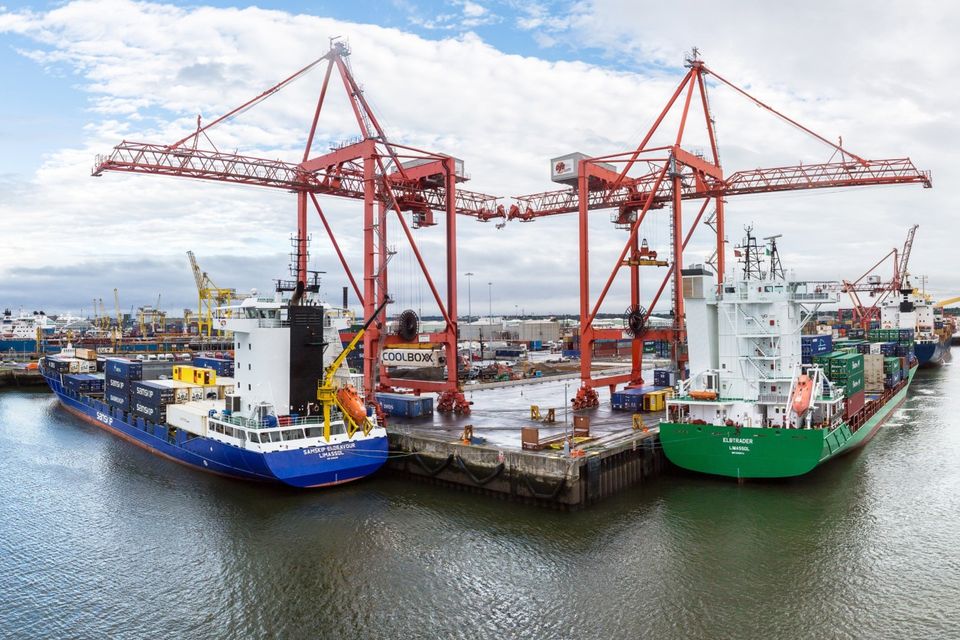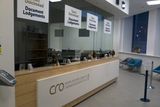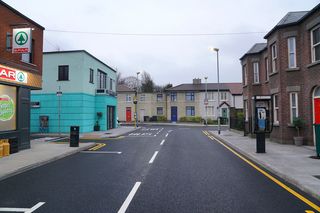Old town, new opportunities, for exporters to central Europe
According to EY'S Attractiveness Survey 2017, Central Europe attracted nearly half of Europe's industrial investment projects in 2016. Its strengths are its geographical links, good infrastructure, the quality of its human capital, and its productivity. (Stock photo)
From Dublin, it only takes two hours to get to Prague. The capital of the Czech Republic is a popular tourist destination. The country is one of the fastest-growing economies in Central Europe. Czech GDP rose 4.5pc in the first quarter. Neighbouring Slovakia was up 3.6pc, with Hungary at 4.7pc, and Romania at 4.2pc.
According to EY'S Attractiveness Survey 2017, Central Europe attracted nearly half of Europe's industrial investment projects in 2016. Its strengths are its geographical links, good infrastructure, the quality of its human capital, and its productivity.
The provision of EU funds is another key driver, particularly for Romania, Hungary, and the Czech Republic. The Financial Times projected an improved economic picture for the region, based on stronger-than-expected global demand, tighter labour markets, government stimulus measures, and easy financing conditions.
Irish exports to the region have also grown over the last 10 years. To support further growth, Minister of State Pat Breen led an Enterprise Ireland trade mission to Warsaw and Prague in June, targeting the engineering, electronics, enterprise software, and medical devices sectors. Irish companies signed contracts in excess of €7.5m during the mission.
Many Irish exporters are growing sales by supplying large multinationals based in the region. Ventac, vehicle and industrial noise control specialists from Co Wicklow, set up a regional sales office in the Czech Republic, while Waterford's PPI Adhesive Products, a leading manufacturer of technical adhesive tapes, run its regional sales operations from Slovakia. Portwest, the Mayo-based designer and manufacturer of high-quality workwear, has a CEE sales headquarters in Hungary.
Irish companies are not just targeting large multinationals. Central European agriculture has grown remarkably over the past number of years, supported by an expanding food industry, domestic investments, and EU farm subsidies. Between 2014 and 2020, CAP and EARDF subsidies will reach €26bn in Romania, €8.3bn in Hungary, and €7bn in the Czech Republic. Spending is driven by pressures on efficiency and food safety, environmental and animal welfare regulations, and by farm machinery upgrade or replacement.
In 2017, MooCall, producers of calving sensors, won a gold medal for innovation at the AnimalTech trade fair in the Czech Republic, while Dairymaster won the Grand Prix at Czech TechAgro 2018 for smart technology for their MooMonitor health and fertility monitoring system.
Enterprise Ireland runs a long-term programme, Opportunities in Agriculture in Central and Eastern Europe, that helps Irish farming machinery and technology producers to enter local markets.
Many Irish companies perceive Central Europe as a source of competitive advantage on the continent. Kingspan, which produces insulation panels, celebrated 20 years of its plant in Hradec Kralove, Czech Republic in May. PM Group, international providers of services in engineering, architecture, project management and construction management opened offices in the Czech Republic and Slovakia in 2010.
Grafton Recruitment and CPL Jobs are market leaders in HR management across the region, while many Irish technology companies set up in Romania to service customers.
Central Europe is also a fast-growing location for business process outsourcing (BPO) centres and service firms. According to Outsourcing Advisors, a third of major outsourcing firms now come from the region. Ireland has a very strong offer for BPO operators, which in turn are always seeking solutions that offer cost savings.
As Brexit uncertainties continue, Central Europe offers significant export market potential, thanks to its closeness to Ireland, strong Irish presence, and concentration of multinationals and local buyers. Enterprise Ireland's office in the Czech Republic is ready to facilitate market research visits, introductions to buyers, and searches for distributors, to help companies we support to win new opportunities.
Ladislav Muller is Enterprise Ireland manager for central/southeast Europe
Join the Irish Independent WhatsApp channel
Stay up to date with all the latest news















